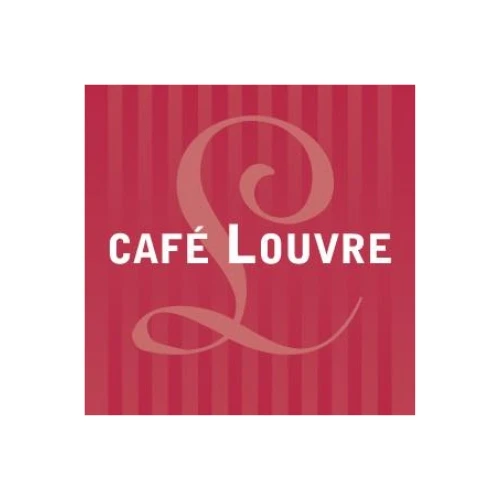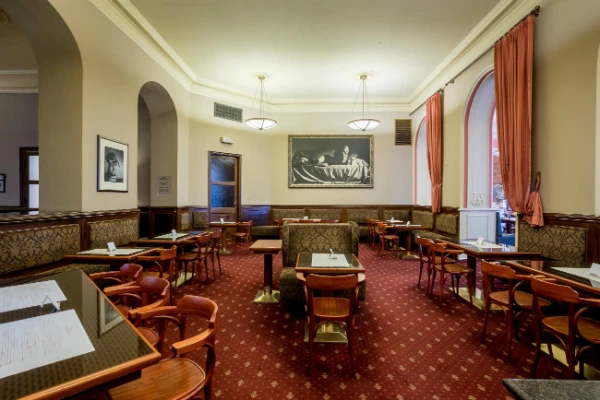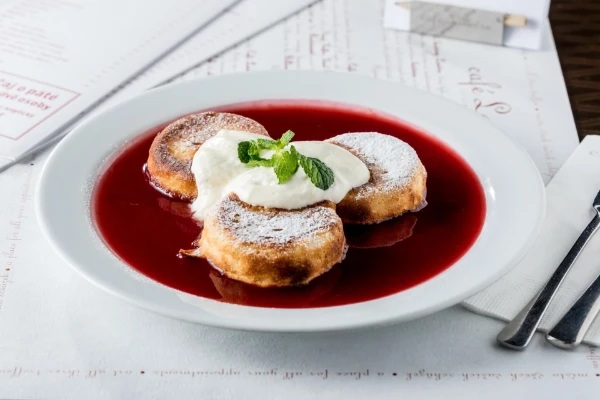

Situated in Prague, Café Louvre was opened in 1902 and instantly attracted a high flow of intellectuals, artists, and important personalities of that era. This imposing café on Národní Třída has seen history being made regarding philosophical debates to writing literary works, which makes it an important part of the rich cultural heritage of Prague.

The timeless atmosphere of this café, preserved over the decades, speaks to a time when Franz Kafka, Albert Einstein, and Karel Čapek regularly came to the house. Nowadays, too, Café Louvre stands at the forefront among places that unite those fond of tradition and delicate taste. Classic menus and historic atmosphere create a special feeling here, which connects the vivid present with nostalgia for the past.
The main reason for visiting Café Louvre is, of course, its historic billiard hall, where one can play a game in surroundings as plush as when players started coming here over a hundred years ago. In fact, it is one of the most famous billiard halls in Prague and offers cheaper rates during the morning hours for those who would like to hone their skills in this quintessential gentleman's sport.
The other tradition dear to the café is its "Five O'Clock Tea," a discreet ceremony that invites one to retreat into a world where life was put in motion with a rhythm very different from haste. Guests can take up a fine choice of black teas, sandwiches, pastries, and desserts, giving in to a peace that's scarcely found in this alive city.

Such rich history is underlined not only by architecture and traditions but also by famous visitors of its halls, from the philosophical discussions of Kafka to the gatherings of Einstein. Café Louvre has been the silent witness of thoughts and ideas which shaped modern culture and science.
The year 1925 found the Café Louvre right at the center of the literary world, as well, when it hosted the constitutive meeting of the Czechoslovak PEN Club, chaired by Karel Čapek and attended by President T. G. Masaryk. This fact sealed the café's position as a hotbed of intellectual debate and imagination.
Still today, Café Louvre opens its doors to people from all walks of life and allows them an opportunity to become a part of the immense cultural heritage of Prague. Visitors, whether drinking their coffee, tasting some pastry, or playing billiards, can really feel as if they had been transferred to a time when history, art, and conversation could flow without any hindrance, just like a river.